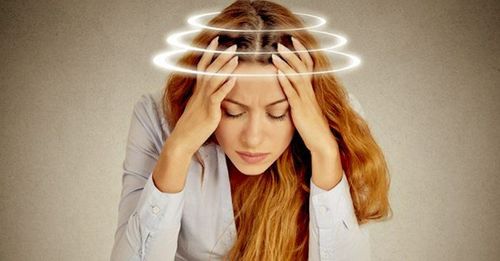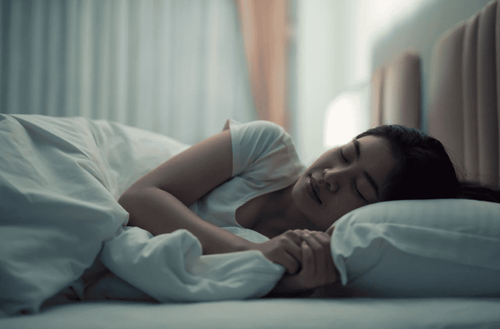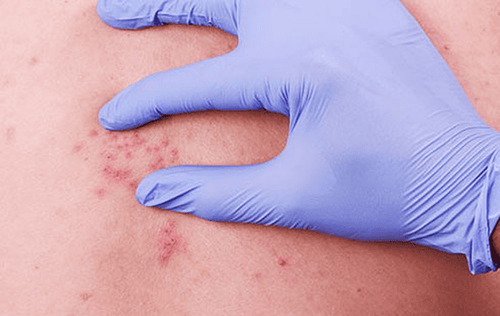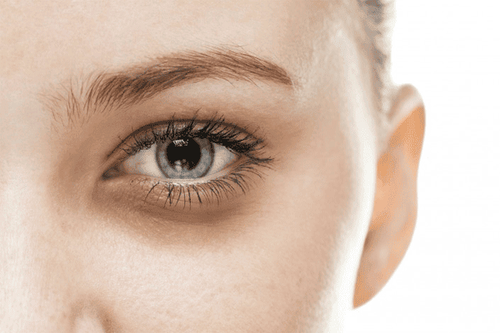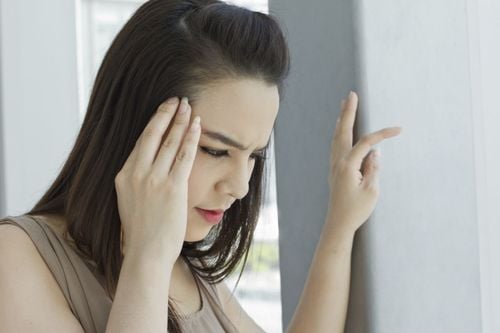Sleep allows the body to rest, repair itself, and carry out essential biological functions. People with insomnia go through 5 stages, with severity increasing over time. Recognizing these stages is crucial for timely treatment.
1. How sleep affects health
Humans need sleep to survive and maintain biological and immune functions. Sleep helps the body repair itself and perform essential tasks. Adults need about 7–8 hours of sleep per night, while children may need more. However, work, school, and lifestyle factors can disrupt sleep.
When you sleep less than needed or not at all, it is called sleep deprivation. Short-term sleep deprivation is not usually a serious concern for most people. However, frequent or prolonged sleep deprivation can lead to serious health issues. It can impair cognitive function, increase inflammation, and weaken the immune system. Long-term sleep deprivation may raise the risk of chronic illnesses.
2. Stages of insomnia
Sleep deprivation is divided into 5 stages, typically measured in 12-hour or 24-hour intervals. Symptoms worsen the longer you stay awake.
2.1 Stage 1: After 24 hours
Staying awake for 24 hours is common and does not usually cause severe health problems, but you may feel tired and in need of rest.
According to the CDC, 24 hours without sleep is similar to having a blood alcohol level of 0.1%, which exceeds the legal driving limit.
Symptoms of 24-hour sleep deprivation may include:
- Drowsiness
- Irritability
- Anger
- Increased stress
- Decreased alertness
- Impaired focus
- Brain fog
- Fatigue
- Shakiness
- Poor coordination
- Increased risk of errors or accidents
- Food cravings
- Puffy eyes
- Dark circles under the eyes
2.2 Stage 2: After 36 hours
When a person goes without sleep for 36 hours, the symptoms become more intense, and there will be an overwhelming urge to sleep. "Microsleeps" - brief moments of sleep lasting up to 30 seconds - may occur without realization.
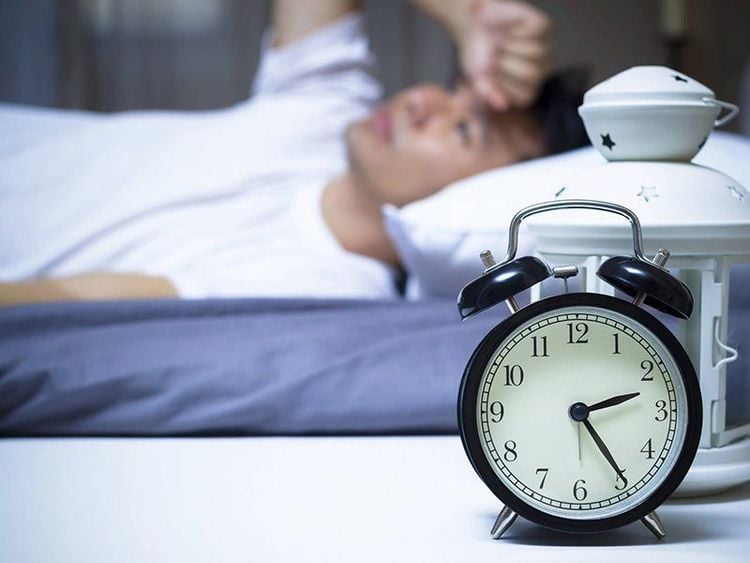
At this stage, different parts of the brain struggle to communicate effectively, severely impairing cognitive performance. Symptoms may include:
- Memory impairment
- Difficulty learning new information
- Behavioral changes
- Poor decision-making
- Trouble processing social cues
- Slower reaction times
- Increased errors at work
People with insomnia may also experience physical effects, such as:
- Increased appetite
- Elevated inflammation
- Weakened immune function
2.3 Stage 3: After 48 hours
Going without sleep for 48 hours is considered extreme sleep deprivation. Staying awake becomes increasingly difficult, and microsleeps are more likely. You may even start experiencing hallucinations—seeing, hearing, or feeling things that are not real. Other possible effects include:
- Depersonalization
- Anxiety
- Heightened stress levels
- Increased irritability
2.4 Stage 4: Awake for 72 hours
After 3 days without sleeping, the desire to sleep will intensify significantly. Microsleeps may occur more frequently and last longer. Severe sleep deprivation will greatly impair cognitive ability, and hallucinations may become more complex, including:
- Delusions
- Disorganized thinking
- Depersonalization
2.5 Stage 5: Awake for 96 hours or more
After 4 days, the perception of reality becomes severely distorted. The overwhelming need to sleep becomes almost unbearable. At this stage, a condition called sleep deprivation psychosis, where the lack of sleep causes a break from reality, may occur. This condition usually resolves once you get adequate sleep.
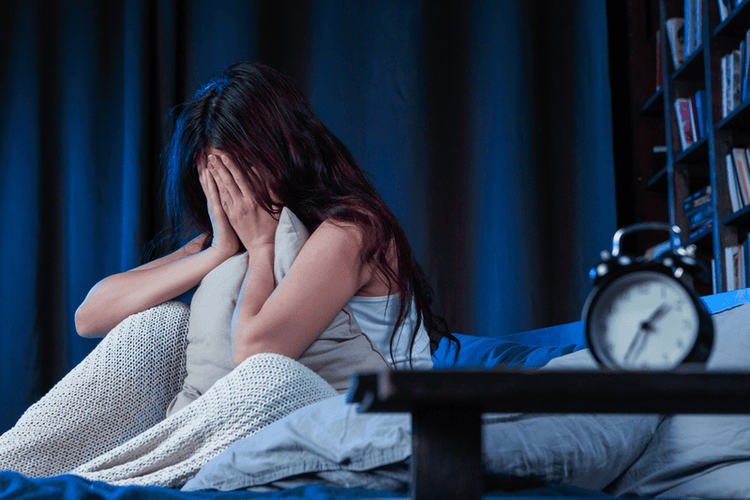
3. How long does it take to recover from sleep deprivation
You can recover from sleep deprivation by getting more sleep. Start by going to bed earlier rather than sleeping in, aiming for at least 7–8 hours of rest each night. This helps your body return to its natural rhythm. It may take days or even weeks to fully recover. As a rule, for every hour of sleep lost, it may take up to 4 days to regain balance. The longer you stay awake, the longer the recovery time.
The best treatment depends on how much sleep you’ve missed. Possible options include:
- Napping: If you’ve only lost a few hours of sleep, short naps can help reduce symptoms. Avoid napping for more than 30 minutes, as it may disrupt your ability to sleep at night.
- Good sleep hygiene: Practicing healthy sleep habits is essential for preventing and treating sleep deprivation.
- Over-the-counter (OTC) sleep aids: OTC sleep aids are a good option for occasional nighttime insomnia. However, avoid overusing them and use them sparingly.
- Prescription sleep medications: Your doctor may prescribe sleep medications, but like OTC aids, their effectiveness may decrease over time.
- Light therapy: For severe insomnia, doctors might recommend light therapy. This treatment is designed to help reset the body’s circadian rhythm.
- Ventilator: If your insomnia is caused by sleep apnea, you may be provided with a device to assist your breathing while you sleep. A continuous positive airway pressure (CPAP) machine is the most common option.
4. Preventing insomnia
Maintaining good sleep hygiene is one of the most effective ways to prevent sleep deprivation. This includes adopting positive lifestyle habits to ensure quality sleep.
4.1. Exposure to natural light
Spending time in natural light helps regulate the body’s production of melatonin, the sleep hormone. This will align your body’s circadian rhythm.
4.2. Regular physical activity
Exercising regularly can help you feel tired at night. Aim for at least 20 to 30 minutes of exercise daily, preferably 5 to 6 hours before bedtime. Exercising too late in the day may interfere with your ability to fall asleep at night.

4.3. Avoid Caffeine in the afternoon
If you consume caffeinated beverages, have your last cup before noon. It can take up to 6 hours for caffeine to be completely eliminated from your body.
4.4. Avoid alcohol before bedtime
Although alcohol can make you feel sleepy, it may disrupt the quality of your sleep. Therefore, avoid consuming excessive alcohol before going to bed.
4.5. Avoid electronic screens before bedtime
Blue light from screens can stimulate the brain and reduce melatonin production. Avoid using electronic devices for 30 minutes to 1 hour before bedtime.
4.6. Establish a relaxing bedtime routine
A relaxing bedtime routine helps prepare your body and mind for sleep. Activities like taking a warm bath, meditating, or listening to soothing music can be effective.
4.7. Create a comfortable sleeping environment
A relaxing and comfortable bedroom can improve sleep quality. To create an ideal sleep environment:
- Turn off electronic devices like computers, TVs, and smartphones.
- Keep the room cool (60–67°F or 16–19°C).
- Use comfortable mattresses and pillows.
- Minimize loud noises with a fan, humidifier, or white noise machine.
4.8. Maintain a consistent sleep schedule
Go to bed and wake up at the same time every day, even on days when you have no obligations. This helps your body maintain a regular rest and activity routine.
4.9. Avoid sleep-disrupting foods
Some foods take time to digest, and the digestion process may keep you awake. Avoid fast food, processed foods high in fat, and greasy meals right before bedtime. If you feel hungry, choose light snacks like crackers or cereal before sleeping. Also, aim to have your last meal several hours before bedtime.
Occasional sleepless nights are normal. However, if you continue to have difficulty sleeping despite practicing good sleep hygiene, consult a doctor. Seek medical help if you often struggle to fall asleep, feel tired after sleeping enough hours, wake up multiple times during the night, or frequently experience fatigue.
Insomnia progresses through five stages, with increasing severity. The first stage of sleep deprivation occurs within 24 hours of missed sleep. Most people can endure this stage, but as sleep deprivation continues, staying alert becomes more challenging, and it may impair cognitive function and perception of reality. Seeking medical assistance becomes critical in such cases.
Please dial HOTLINE for more information or register for an appointment HERE. Download MyVinmec app to make appointments faster and to manage your bookings easily.
Reference source: healthline.com
To arrange an appointment, please call HOTLINE or make your reservation directly HERE. You may also download the MyVinmec app to schedule appointments faster and manage your reservations more conveniently.
